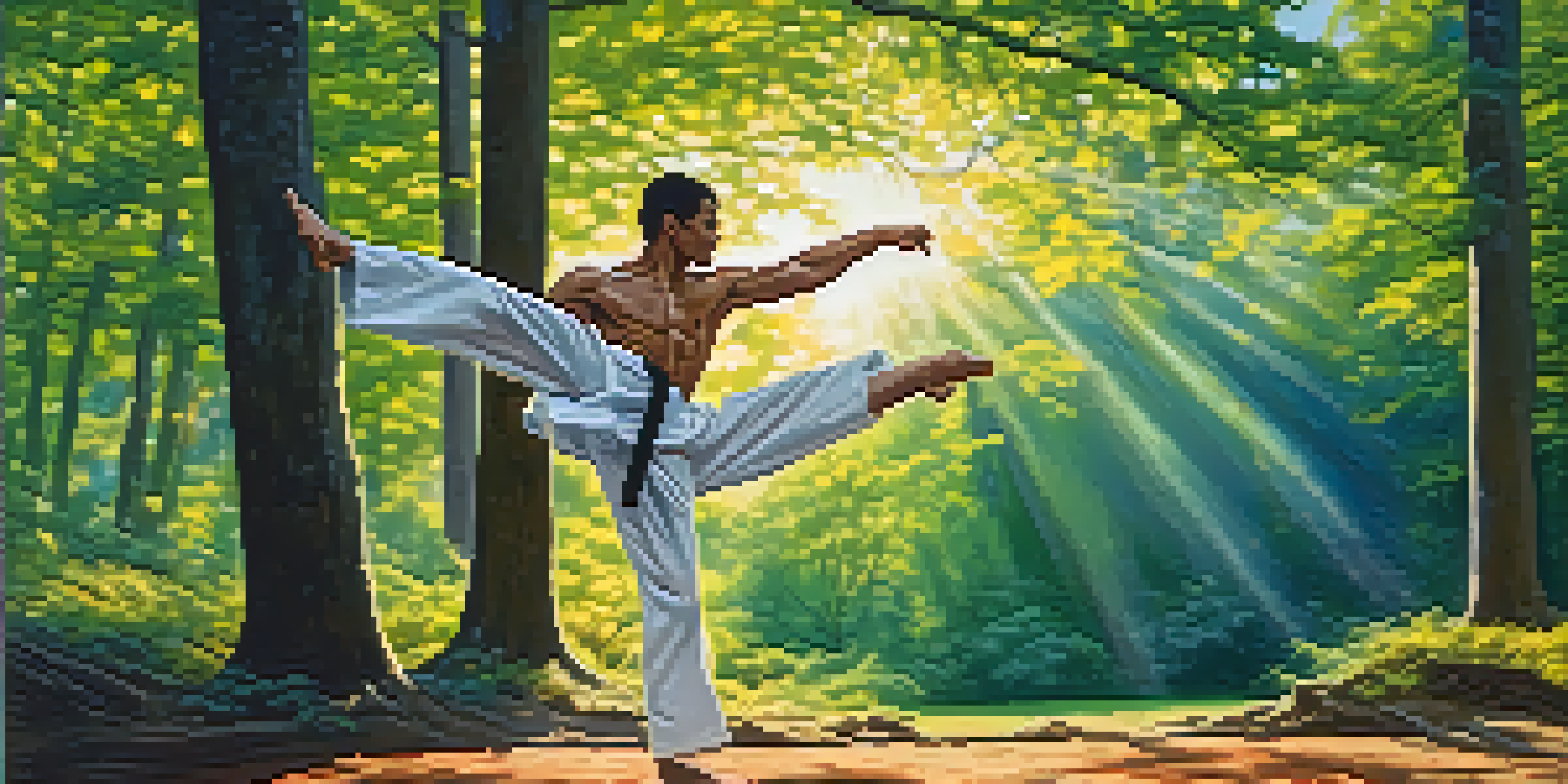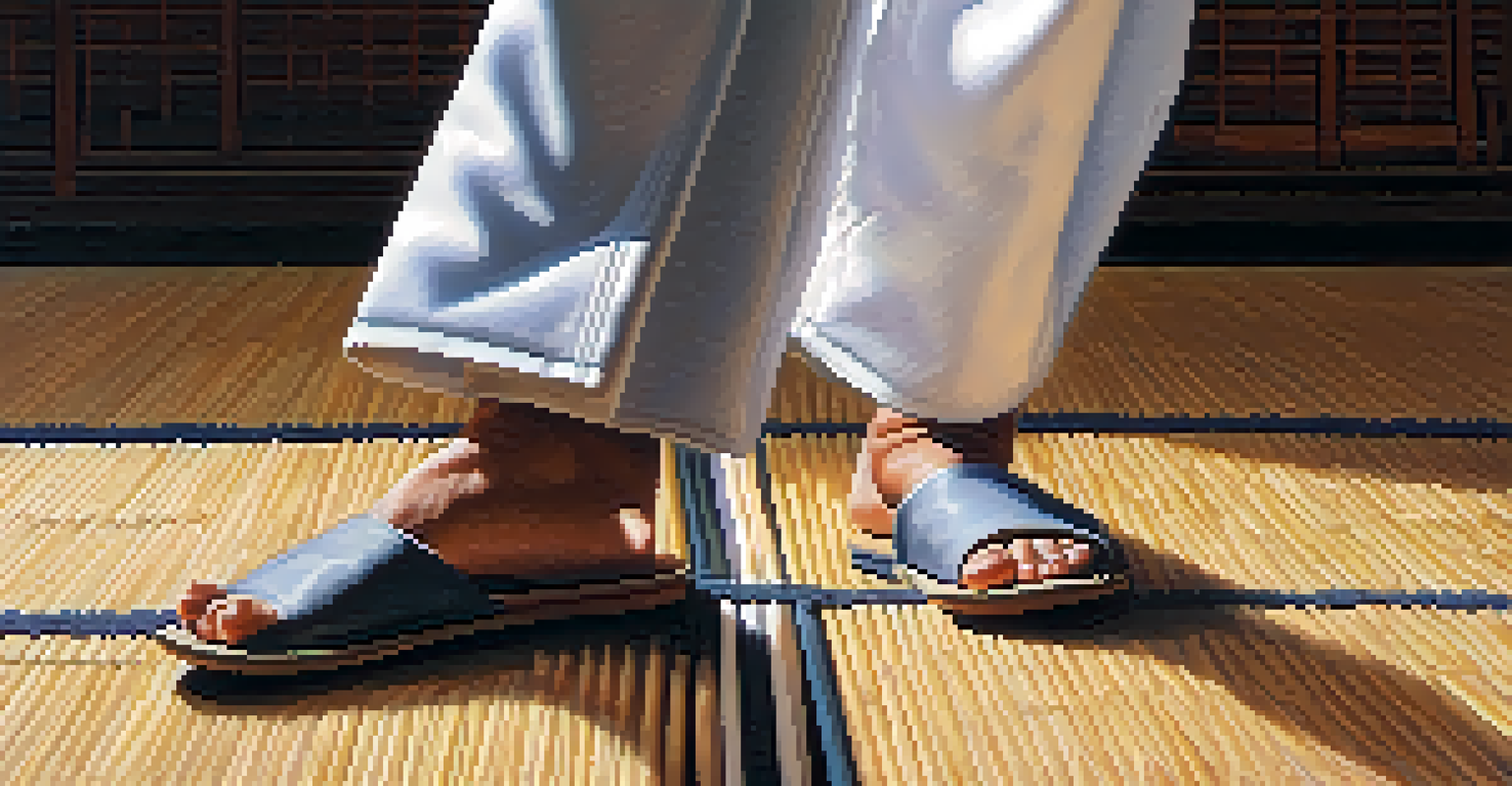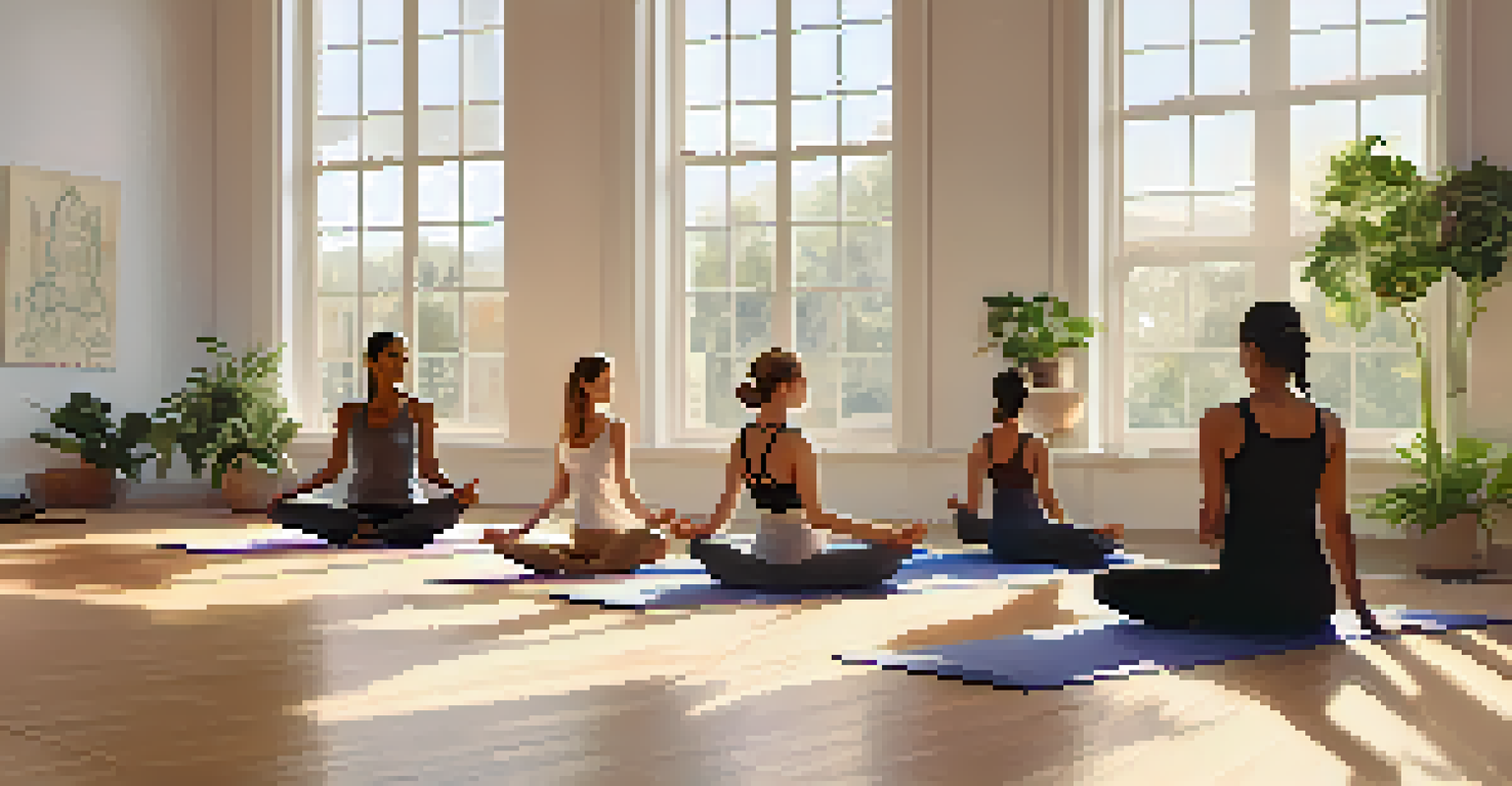The Role of Flexibility in Martial Arts and Life Adaptation

Understanding Flexibility in Martial Arts
Flexibility in martial arts refers to the range of motion in joints and muscles. This physical attribute is crucial for executing techniques effectively, whether it’s a high kick or a swift dodge. Just like a tree bending in the wind, a flexible martial artist can withstand pressure and adapt to changing circumstances.
The measure of intelligence is the ability to change.
Incorporating flexibility training into martial arts can prevent injuries and enhance performance. For instance, stretching routines, yoga, and dynamic movements help increase flexibility over time. Think of it as tuning an instrument; the more you practice, the better it plays in harmony with other techniques.
Moreover, flexibility isn’t solely about physical ability; it represents mental adaptability as well. A martial artist must be ready to adjust strategies mid-fight, reflecting on their opponent's moves and responding accordingly. This dual aspect of flexibility is essential for success on and off the mat.
The Connection Between Flexibility and Adaptability
Adaptability is the ability to adjust to new conditions, whether in martial arts or daily life. Just as a martial artist adapts their technique based on their opponent's style, people must often change their approach to challenges. This connection highlights how flexibility is not just a physical trait but a vital life skill.

For example, consider how a sudden change in a work environment can throw someone off balance. Those with flexible mindsets can pivot and find new solutions, much like a martial artist shifting stances to counterattack. This ability to adapt can lead to greater success and satisfaction in various life situations.
Flexibility Enhances Performance
Incorporating flexibility training not only improves martial arts techniques but also boosts overall health and athletic performance.
Ultimately, flexibility promotes resilience. When faced with unexpected challenges, individuals who embrace flexibility are better equipped to bounce back. This resilience is a key factor in both martial arts and personal growth, allowing one to navigate obstacles with confidence.
Physical Benefits of Flexibility Training
The physical benefits of flexibility training extend beyond martial arts skills; they enhance overall health and well-being. Improved flexibility can lead to better posture, reduced muscle tension, and increased blood flow. Think of your body as a well-oiled machine; flexibility keeps all parts functioning smoothly.
It is not the strongest of the species that survive, nor the most intelligent, but the one most responsive to change.
Incorporating stretching exercises into your routine can also improve athletic performance. For instance, athletes who regularly stretch often experience greater agility and speed, essential in various sports. Just imagine a sprinter with tight hamstrings versus one who prioritizes flexibility; the difference is striking.
Additionally, flexibility training can help prevent injuries, which is invaluable in martial arts. By easing tight muscles and improving range of motion, practitioners can avoid strains and sprains. It’s like having a safety net; the more flexible you are, the less likely you are to fall.
Mental Flexibility and Its Importance
Mental flexibility is just as crucial as physical flexibility in martial arts and life. It involves the ability to shift your perspective and approach challenges with an open mind. This type of flexibility empowers individuals to embrace change rather than resist it, fostering personal growth.
For example, a martial artist facing a challenging opponent may need to rethink their strategy mid-bout. Those who can adapt mentally are more likely to find success, while rigid thinkers may struggle. This principle applies to life; being open to new ideas can lead to unexpected opportunities.
Mental Flexibility Fosters Growth
Mental adaptability is crucial for martial artists and individuals alike, enabling them to embrace change and find creative solutions to challenges.
Cultivating mental flexibility can also enhance problem-solving skills. When faced with a dilemma, those with a flexible mindset are more adept at finding creative solutions. This adaptability is a valuable asset, enabling one to navigate both martial arts and everyday life with ease.
Flexibility as a Key to Personal Growth
Flexibility plays a significant role in personal growth, allowing individuals to step outside their comfort zones. Just as a martial artist must push their limits to master new techniques, personal growth often requires embracing discomfort. This willingness to adapt fosters resilience and self-improvement.
For instance, taking on new challenges, whether in work or hobbies, can initially feel daunting. However, those who approach these situations with flexibility are more likely to succeed. They view setbacks as learning opportunities rather than failures, which is essential for growth.
Ultimately, embracing flexibility in life encourages a mindset of lifelong learning. Just as martial artists continuously refine their skills, individuals can foster their growth by remaining open to change and new experiences. This journey of adaptation leads to a richer and more fulfilling life.
Training Techniques to Improve Flexibility
Improving flexibility requires consistent training and the right techniques. Incorporating dynamic stretches, static stretches, and yoga into your routine can significantly enhance your flexibility. Think of it as building a bridge; each training session lays down another plank toward your goal.
Dynamic stretches, like leg swings and arm circles, are great for warming up before practice or workouts. They prepare your muscles for movement and improve your range of motion. On the other hand, static stretches, held for longer durations, help increase muscle length and flexibility after training.
Flexibility Aids in Personal Resilience
Being flexible in life helps individuals navigate unexpected situations and promotes a mindset of lifelong learning and resilience.
Yoga is another fantastic method for enhancing flexibility. It combines physical postures with breath control, promoting both flexibility and mental focus. Regular practice can lead to profound improvements in flexibility and overall well-being, proving that flexibility is a holistic endeavor.
Applying Flexibility in Everyday Life
Flexibility isn't just for martial arts; it’s a valuable trait to cultivate in everyday life. Learning to adapt to changing circumstances, whether in your career or personal relationships, can lead to more fulfilling experiences. Just like in martial arts, flexibility in life can help you navigate the unexpected.
For example, consider a job loss: a person who embraces flexibility may view it as an opportunity to pursue a new career path or start a business. Those who cling to rigidity may struggle to cope with change, missing out on potential growth. This perspective shift can make all the difference.

In essence, applying flexibility in life allows for a more resilient mindset. When you approach challenges with openness and adaptability, you’re more likely to find creative solutions and seize opportunities. Flexibility becomes a powerful tool for success, both on and off the mat.